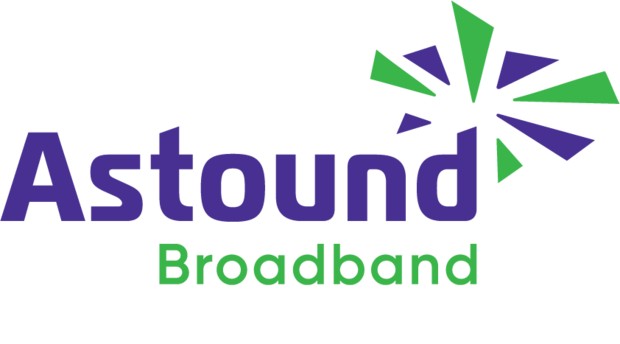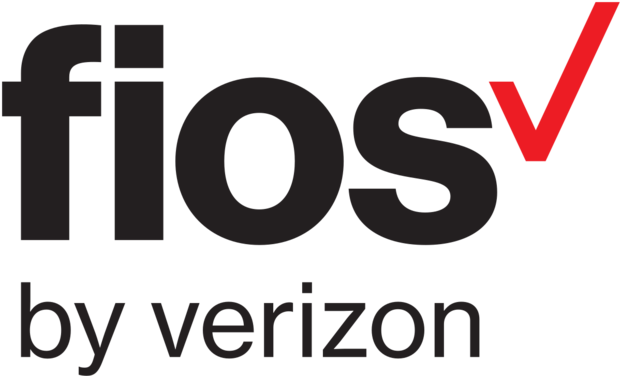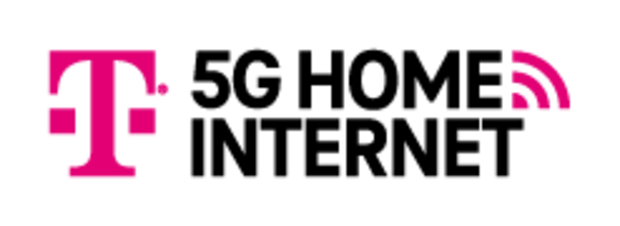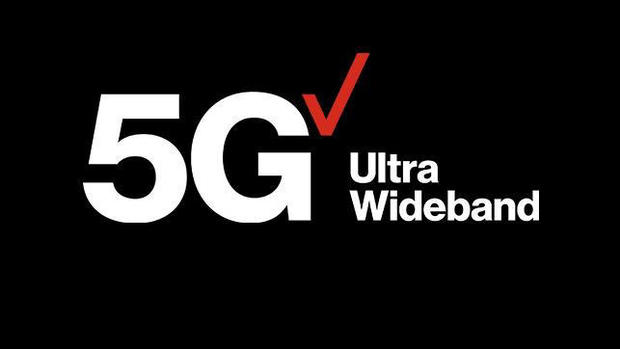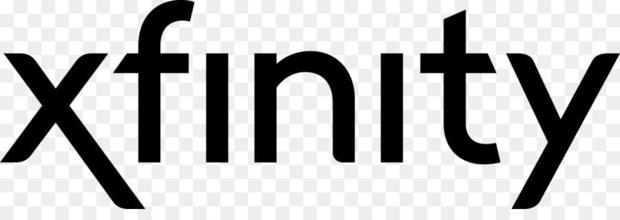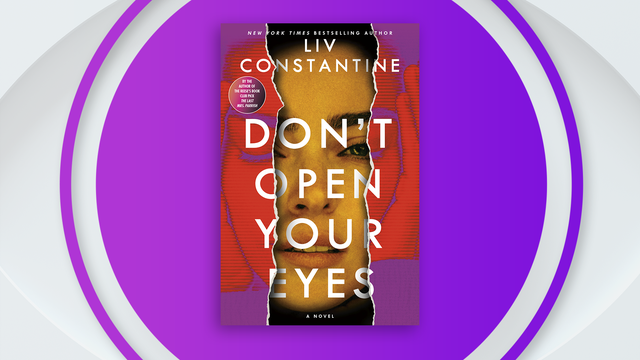The best cheap Internet services New York has to offer, according to our in-house experts
Sure, New York housing prices may be giving you sticker shock. But that doesn't mean your new high-speed Internet service provider has to do the same. The Big Apple never sleeps, so it makes sense that neither should your Internet. In fact, you probably want the fastest, most reliable Internet service available for your mobile devices, computers, smart TVs and smart home gear. That's why we've compiled this roundup of the best and cheapest Internet services in New York.
If you're moving to New York or want to upgrade your existing home Internet service to one that's faster and more reliable -- so you can stream your favorite shows glitch-free, play your favorite games lag-free and experience an altogether better web surfing experience, we've discovered some great options.
Related: How we select our products
Whether you're looking to establish new Internet service in New York, or need to transfer your service from one provider to another, first determine the Internet connection speed that would be most suitable for your needs. You then want to figure out which Internet service providers (ISPs) offer what you need in terms of service availability at your location.
Next, focus on what new equipment you may need to purchase or rent (such as a modem, wireless router and Wi-Fi extenders) and what contract length you'll need to commit to. Of course, you also want to understand what your monthly rate will be. Keep in mind, when you bundle home Internet with TV service, home phone service, cellular service and/or a home security service that's provided by your ISP, you can save a lot of money.
Let's take a look at the best and most affordable Internet service providers operating in New York and what each has to offer. They're listed here in alphabetical order for easy reference.
Get home Internet in New York City without spending a fortune
There are a handful of well-known and reliable Internet service providers operating in New York and most offer great deals on home Internet services. Remember, the lowest advertised prices are typically for the slowest Internet connecting speeds, which may not be suitable for streaming 4K video content or handling multiple users. To achieve faster connection speeds, a higher-priced Internet plan may be required.
Very affordable: Astound Broadband
Starting Price: $25/month | Max. Download Speed (for "basic" plan): Up to 300 Mbps | Connection Type: Fiber optics | Required Contract: No | Data Caps: No | Equipment Fees: No
Astound is one of the most affordable home Internet services in New York. The company offers reliable, fiber-optic connectivity, starting at $35 per month for service up to 300 Mbps. You also get a one-year price lock. The modem you need is included. For $40 per month, you can achieve a connection speed up to 600 Mbps and get a two-year price lock. For $60 per month, enjoy a connection speed up to 1,500 Mbps.
All plans include free installation. The $25 and $40 per month plan also include one free month of service, but if you sign up for the $60 per month plan, you get two months of free service, plus a $100 gift card. Further discounts are available if you bundle your cellular phone and TV service.
Why we like Astound Broadband: The company offers affordable, flat-rate pricing with a guaranteed price lock of at least one year, with no contract required and no data caps.
A great fiber optic option: Fios by Verizon
Starting Price: $25/month | Max. Download Speed (for "basic" plan): Up to 300 Mbps | Connection Type: Fios (fiber optic) | Required Contract: No | Data Caps: No | Equipment Fees: No
Fios by Verizon should not be confused with Verizon 5G. Both services are operated by the same company and offer home Internet, but the technology used to provide the connectivity is vastly different. Fios by Verizon uses fiber optics, while Verizon 5G relies on a home-based, 5G cellular data connection (similar to what your smartphone probably uses).
The advertised Fios plan that offers a 300 Mbps connection speed costs $25 per month, but is only available if you sign up for autopay and use Verizon as your cellular service provider. Otherwise this home Internet service plan costs $50 per month. It comes with a two-year price guarantee and a router. When you sign up, you may also qualify for a $50 Verizon gift card as a bonus.
Fios by Verizon also offers a 500 Mbps home Internet plan for $45 per month, which also requires you to sign up for autopay and be a Verizon cellular service customer. Otherwise this plan's cost jumps to $70 per month. It comes with a three-year price guarantee and a router. Plus, when you sign up, you may qualify for a $50 Verizon gift card.
Verizon's fastest Fios home Internet service offers a connection speed up to 1GB. If you're a Verizon mobile service subscriber and sign up for autopay, this plan costs $65 per month. Otherwise the plan costs $90 per month. The 1GB plan comes with a router and whole-home Wi-Fi extenders, a four-year price guarantee and your choice of a free Apple HomePod smart speaker or a $400 Verizon gift card -- a pretty sweet incentive. You can also select between a free subscription to Disney+ or a MoCA Ethernet adapter (plus a $50 Xbox eGift card).
If you're already committed to an Internet service provider that charges an early termination fee if break your contract, Verizon will reimburse you up to $500 to cover that fee when you switch ISPs.
Why we like Fios by Verizon: Fios (which uses fiber optics) offers fast and reliable service. For a family, we recommend either the 500 Mbps or 1GB plan, since multiple users will likely be streaming video, playing online games, participating in video calls, or surfing the web at the same time.
Up to 8GB connection speed available: Optimum
Starting Price: $40/month | Max. Download Speed (for "basic" plan): 300 Mbps | Connection Type: Fiber optics | Required Contract: No | Data Caps: No | Equipment Fees: No
Starting at the flat-rate of $40 per month (which includes installation and the required equipment) Optimum home Internet service uses fiber optics to provide a fast and reliable connection. A $5 per month discount is offered if you also sign up for Optimum Mobile service for your smartphone.
In addition to the basic 300 Mbps connection speed plan, Optimum offers a variety of much faster plans -– up to 8GB. For example, the 500 Mbps plan is priced at $60 per month, while you'll pay $80 per month for the 1GB plan. If you jump up to the 2GB plan, the cost is $100 per month, while the lightning fast 8GB plan is $280 per month. All equipment is included. (Each plan refers to the maximum connection speed available, not the maximum amount of data you can use per month. Optimum has no data caps.)
As a bonus, when you sign up for the 1GB plan, Optimum includes a $200 prepaid gift card. The 2GB plan includes a $300 prepaid gift card. For all plans, a one-time installation fee may apply (except for returning customers), but in most cases, a free self-installation option is also available.
Why we like Optimum: While the 300 Mbps plan is nothing special, few ISPs in New York offer affordable 1GB, 2GB or 8GB connection speed options, which are ideal for busy families and smart homes.
Great Internet and TV service bundles: Spectrum
Starting Price: $50/month | Max. Download Speed (for "basic" plan): 300 Mbps | Connection Type: Broadband | Required Contract: No | Data Caps: No | Equipment Fees: No
Spectrum offers a variety of home Internet options, starting with its basic plan that offers a connection speed up to 300 Mbps. A free modem with a self-install option is available. If you want to add TV service (with 125+ channels) to this plan, the total monthly fee is $110. But, if you want to bundle home Internet, TV service and cellular service, a variety of discounted plans are available. These bundles include home Internet (with a 300 Mbps connection speed), more than 200 TV channels and unlimited calling, texting and wireless data from your smartphone.
For faster home Internet connectivity, Spectrum also offers a 500 Mbps plan for $70 per month and a 1GB plan for $90 per month. And if you order any home Internet service online from Spectrum, you'll get a one-time $50 credit. All plans also include an Xumo Stream Box for your TV.
Why we like Spectrum: The company offers a variety of affordable stand-alone Internet and bundle plans, with no contract, no data caps and no modem rental fee.
Truly low-cost home Internet: Starry
Starting Price: $15/month | Max. Download Speed (for "basic" plan): 30 Mbps | Connection Type: Wireless | Required Contract: No | Data Caps: No | Equipment Fees: No
Available in limited areas throughout New York (and the boroughs), Starry provides wireless Internet at extremely affordable prices, starting at just $15 per month. However, this ultra-low cost plan offers a connection speed of just 30 Mbps. We recommend choosing the Starry 200 ($40/month), Starry 300 ($50/month), Starry 500 ($60/month), or Starry 1GB ($75/month) plan for service that will be more usable by a family or a home with multiple smart devices installed. You'll also need the faster connection to stream video.
Free professional installation is included, as is a 30-day money back guarantee. The company will also help you cover any early termination fees from your existing ISP, with an up to $200 reimbursement for qualifying customers. Most plans come with a one-year price guarantee. While a free Starry Wi-Fi Router is included, you can upgrade to the company's more powerful Wi-Fi 6 router for an extra $14 per month. There's also a $5 per month upgrade free if you want to boost your upload speeds.
Why we like Starry: The company offers a variety of straight-forward home Internet plans that are affordable and come with the core equipment needed.
Get affordable 5G Internet at home: T-Mobile 5G Home Internet
Starting Price: $30/month | Max. Download Speed (for "basic" plan): Varies | Connection Type: 5G cellular | Required Contract: No | Data Caps: No | Equipment Fees: No
Like Verizon 5G, T-Mobile offers 5G home internet connectivity, but the super-low advertised prices that start at $30 per month are only for customers who sign up for autopay and have a qualifying T-Mobile Go5G Next, Go5G Plus or Magenta Max cellular phone plan for their smartphone. All T-Mobile 5G home Internet plans come with a 5G Wi-Fi gateway device. Some of the plans also include your choice of a free Netflix or AppleTV+ subscription.
If you don't want to bundle your smartphone cellular service or home phone service when you sign up for T-Mobile Home Internet, the monthly cost is $50 (if you sign up for auto pay). The plan comes with a free 15-day "test drive," a permanent price-lock guarantee (for as long as you keep the service), and no annual contract. In fact, T-Mobile will reimburse you up to $750 to pay the early termination fee for your existing Internet service.
Why we like T-Mobile 5G Home Internet: Customers experience the same, fast 5G cellular connectivity at home as they get from their 5G smartphone. T-Mobile provides the necessary equipment.
A reliable 5G home Internet provider: Verizon 5G
Starting Price: $35/month | Max. Download Speed (for "basic" plan): Varies | Connection Type: 5G cellular | Required Contract: No | Data Caps: No | Equipment Fees: No
Verizon advertises a flat monthly fee of $35 per month for its 5G home internet plan, but to qualify, you need to sign up for auto pay and have a qualifying 5G mobile plan. Otherwise the rate jumps to $60 per month. This is also true for the 5G Home Plus service, which is advertised for $45 per month, but if you don't sign up for auto pay and use Verizon as your cellular service provider, it jumps up to $80 per month.
The 5G Home plan includes an Internet speed fast enough to stream 1080p video content. You also get a free wireless router and a two-year price guarantee. The 5G Home Plus plan offers Internet speed fast enough to stream 4K video, includes a wireless router and comes with a three-year price guarantee. Both plans have no data cap and no annual contract.
As an incentive to sign up for the 5G Home Plus Plan, Verizon is currently offering a free Apple HomePod smart speaker (worth $300) and a $200 Verizon gift card. And if you're switching from another IPS that charges an early termination fee to cancel your service before your contract expires, Verizon will reimburse you up to $500 credit to cover that expense.
Why we like Verizon 5G: This is a cellular data option for the home that allows for easy self-installation with a 30-day money back guarantee.
Bundle broadband internet with TV and more: Xfinity Home Internet Service
Starting Price: $30/month | Max. Download Speed (for "basic" plan): 200 Mbps | Connection Type: Broadband | Required Contract: No | Data Caps: No | Equipment Fees: Depends
Starting at $30 per month for an Internet connection speed up to 200 Mbps, Xfinity offers reliable home service with no long-term contact or data caps. There is, however, an equipment fee if you rent your modem/router from Xfinity. In addition to the basic plan, Xfinity offers its 400 Mbps ($50/month), 800 Mbps ($70/month), 1GB ($80/month) and 1,200 Mbps ($90/month) plans.
A variety of discounts are offered if you're willing to bundle home phone service, TV service, or other Xfinity services with your home Internet plan. With all plans, Xfinity includes the xFi Gateway modem/router for free for up to 24 months (after which it will cost an $15 extra per month). You can upgrade to the Storm-Ready xFi Gateway for an extra $7 per month.
Upgrading to the optional xFi Complete equipment will cost an extra $20 per month for 12 months (after which it will be $25 per month). The Complete setup includes advanced Wi-Fi security, the ability to upgrade your equipment after three years and wall-to-wall Wi-Fi coverage within your home. You can also use your own equipment, but Xfinity will not provide upgrades or support for it.
Why we like Xfinity Internet Service: The company offers a variety of home Internet plans to choose from, as well as multiple rental options for the required modem and Wi-Fi router.
What is an Internet Service Provider (ISP)?
A company that provides access to the Internet for a monthly fee. Most ISPs offer a variety of Internet plans, with the monthly cost related to connection speed. The lowest price plans typically have the slowest connection speeds and are suitable for basic web surfing and providing Wi-Fi connectivity to a limited number of devices. The slowest connections are typically not suitable for serious gamers or for streaming 4K resolution video.
What's the best Internet option for low income households?
For qualifying lower-income households, the Affordable Connectivity Program (under the FCC) guarantees a discount up to $30 per month on home Internet service for work, school, healthcare or other essential purposes. This discount can be used with any Internet Service Provider within the United States. Also, be sure to ask the Internet service provider about discounts for students, seniors, first responders and military personnel.
Can I use my smartphone as an Internet hotspot at home?
Depending on your cellular service plan, you could potentially use a personal Wi-Fi hotspot generated by your smartphone within your home. However, there are some drawbacks to this option.
First, after using a predetermined amount of data via your smartphone or Wi-Fi hotspot, many cellular service providers throttle speeds. Also, if you're using any smart devices in your home, they'll only fully operate when your smartphone is within the 33-foot (Bluetooth) signal radius of a smart device and when the phone's personal Wi-Fi hotspot is turned on. If you leave the area and bring your phone, your home will no longer have Wi-Fi until you return.
Is 5G cellular Internet connectivity a viable option for a home?
Yes, multiple cellular service providers, including T-Mobile and Verizon, now offer cellular modems to provide wireless 5G Internet connectivity for a home via the service's cellular data network.
What are data caps?
Some Internet service providers offer customers a specific data allowance per month, which is how much data that can be sent and received between the Internet and the computers and devices you're using. Once you reach that data cap, either your connection speed will be throttled (slowed down) dramatically, or you'll be billed extra for each additional gigabyte of data that's sent or received.
To experience the best Internet connectivity within your home, seek out an Internet service provider that advertises unlimited data at a predetermined speed, with no data caps and no data throttling.
What types of Internet connections are there?
There are multiple technologies available to consumers that Internet Service Providers can make available. Which option(s) are available to you will depend on your location and which ISPs are operating in your area.
That said, if you have a choice about your Internet connection type, your decision should be based on what you'll primarily be using the Internet for; how many people in your home will need Internet access simultaneously; whether you'll be streaming 4K video content (from Netflix, for example); if you'll be playing online-based multiplayer games; if one or more people in your household will be using video calling; and if your home is equipped with a bunch of smart gear that relies heavily on the Internet.
Some connection types are faster and more reliable than others. Ultimately, understanding the different types of Internet connectivity that might be available to you will help you best meet your household connectivity needs.
- Cable Internet (also known as broadband) uses the same lines that deliver cable TV. It's usually faster than using DSL, which makes it good for streaming videos or online gaming. It's also a good choice if you work at home, since there's rarely downtime you'll have to deal with.
- DSL (digital subscriber line) internet uses regular telephone lines to provide Internet access. It's a reliable option that provides consistent speeds. It's suitable for everyday web browsing, online shopping and checking emails.
- Fiber-optic internet uses thin strands of glass to transmit data using light. It can offer very high speeds, making it a good choice for things that use a lot of bandwidth, like downloading large files and streaming 4K resolution movies and TV shows. It's also a good option for gamers.
- Satellite internet uses satellites to deliver the Internet to a receiving satellite dish. This type of connection is often used in rural areas (or aboard airplanes and ships) where other Internet connectivity methods aren't available. Its performance can be affected by weather. This option is often expensive and offers a slower connection speed than most other options.
- 5G cellular/mobile internet is what you use on your smartphone. Some people also use mobile hotspots that plug into their computers to give them Internet access, especially when traveling or heading out to areas without other types of Internet. Internet service providers, like T-Mobile and Verizon, now offer 5G internet for the home. It uses specialized equipment to access cellular Internet and then generates a Wi-Fi signal throughout a home. Expect the same connection speed using 5G home Internet as what you get at home using your smartphone to access the Internet (assuming you have a 5G smartphone).
- Dial-up internet is an antiquated and very slow Internet connectivity option that also uses telephone lines. It's mostly been phased out, but people living in rural areas might still use it.
Related content from CBS Essentials
- Best Chromebooks for 2023
- Best laptops under $500: Experience mobile computing on a budget
- The best laptops in 2023
- Best 55-inch TVs for 2023
- Best 65-inch TVs for 2023
- The best Christmas gifts for gamers in 2023, according to our in-house gaming experts
- The absolute next Christmas tech gifts for someone who has everything and loves gadgets


